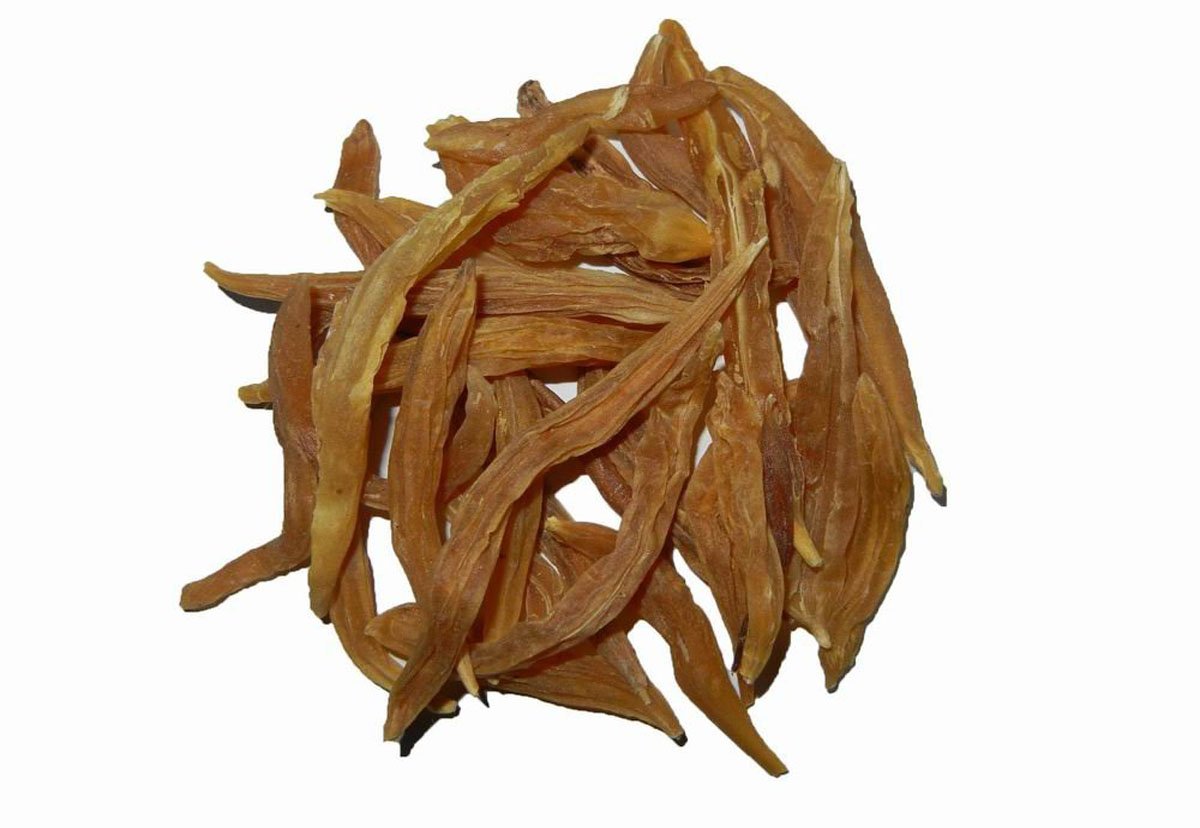Shatavari
We offer our clients a pure range of fresh (raw) and finely processed dried Nepali and White Desi Shatavari roots. The plant of Nepali cultivar is of approx. 3-5 feet height, whereas, Desi cultivar is an armed climber.
Product information
Scientific Name: Asparagus racemosus
English Name: Asparagus, Buttermilk root, Climbing Asparagus, Wild Asparagus
Hindi Name: Satawar, Ghatwal, Satamuli, Shatavari
Family: Liliaceae
Root Color: Golden yellow
Usage of roots: Medicinal
Physical condition: Completely dried, healthy and thick roots
Origin: India
Packing of roots: Plastic bag
Availability: Throughout the year
Medicinal Properties
Nutritive tonic, Rejuvenative, Aphrodisiac, Laxative, Refrigerant, Demulcent, Diuretic, Anti-spasmodic, Anti-dysenteric, Antacid, Anti-tumor and Galactagogue.
General characteristics
Nepali Satavar, a tuberous herb with straight and hooked spines, is a species of asparagus common throughout Sri Lanka and all over India in tropical areas and is abundantly found in Himalayas. It grows 1-2 m tall and prefers to take root in gravelly, rocky soils high up in piedmont plains at 1300-1400 m elevation.
The leaves are green, shiny, small, and uniform and like pine needles. Its tubers are white, radish shaped, and found in clusters, and its branches are modified into a leafy structure. In fact, the entire plant has a feathery appearance. The stem is woody and dark green, the flowers are fragrant, small and white, and the fruits are fleshy red berries that turn purplish black when ripe. It is propagated through seeds and rooted nursery plants.
Medicinal Benefits / Uses
The name Shatavari means curer of a hundred diseases(shat: hundred; vari: curer). Due to its multiple uses, the demand for Shatavari is constantly on the rise. It is recommended in Ayurvedic texts for the prevention and treatment of gastric ulcers, dyspepsia and as a galactogogue.
It has also been used by some Ayurvedic practitioners for nervous disorders. Shatavari helps in treating for infertility, irregularities in ovulation, PMS symptoms such as those excessive bleeding, cramps, pain, bloating, menopausal and other post menopausal symptoms, reduced breast milk secretion in the nursing women, Lmenorrhea, Dysmenorrhea, Leucorrhea and pelvic inflammatory diseases, Decrease in the libido and many other diseases.
It improves sperm quality, improves sperm and semen health and sperm mobility. Promotes maternal health and enhances breast milk secretion in lactating mothers. An all-round tonic and rejuvenative which can be given to a person with any type, constitution, males or females, youngsters or elders.





 Keen to Serve Our Best on Your Farm
Keen to Serve Our Best on Your Farm








